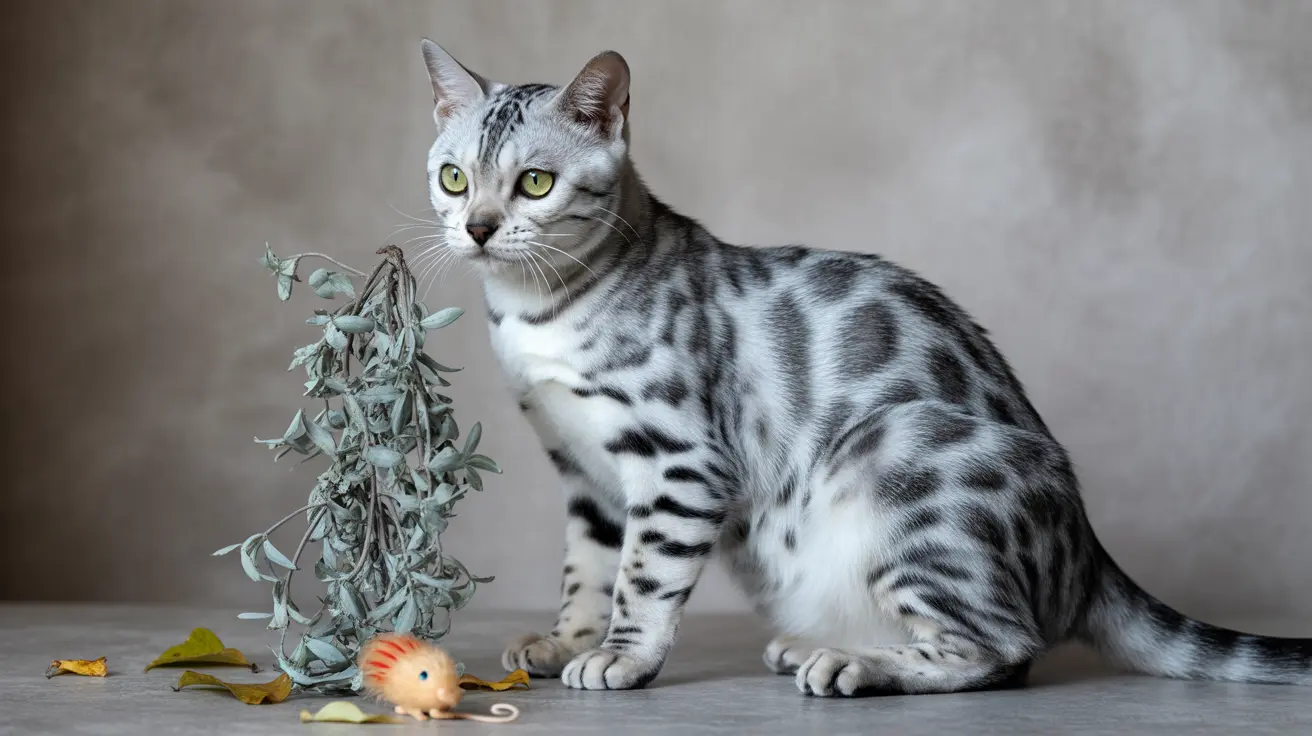The Science Behind Catnip Sensitivity
Have you ever wondered why your cat seems indifferent to catnip while other felines go crazy for it? You're not alone. Many cat owners are surprised to discover that their furry friend doesn't respond to this popular herb, and there's actually a fascinating scientific explanation behind this phenomenon.
Research shows that approximately 30-50% of cats don't react to catnip at all. This isn't because they're being stubborn or picky – it's actually hardwired into their DNA. The ability to respond to catnip is an inherited trait, determined by specific genes that some cats simply don't possess.
Genetic Factors Affecting Catnip Response
The primary reason your cat might not like catnip comes down to genetics. Catnip sensitivity is inherited through an autosomal dominant gene, meaning if a cat inherits the sensitivity gene from either parent, they'll likely respond to catnip. However, if they don't inherit this gene, they won't react to catnip regardless of how much you offer them.
Interestingly, geographical variations play a role too. For example, most Australian cats don't respond to catnip due to their specific genetic ancestry. This demonstrates how breeding patterns and regional gene pools can influence catnip sensitivity across different cat populations.
Age and Development Considerations
If you have a kitten, don't be concerned if they're not interested in catnip yet. Cats typically don't develop a response to catnip until they're between 3 to 6 months old. This developmental timeline is consistent across all cats that possess the catnip-sensitive gene.
Senior cats may also show decreased interest in catnip, as their sensory responses can become less acute with age. This is a normal part of the aging process and shouldn't be cause for concern.
Alternative Enrichment Options
Just because your cat doesn't respond to catnip doesn't mean they can't enjoy similar stimulating experiences. Several alternatives have proven effective for cats that don't react to catnip:
- Silvervine (Actinidia polygama): About 75% of catnip non-responders react positively to this alternative
- Tatarian honeysuckle: Approximately one-third of non-responders show interest
- Valerian root: Known to produce similar effects in many cats
- Interactive toys and puzzle feeders
- Regular play sessions and environmental enrichment
Environmental Factors and Stress
Sometimes, a cat's apparent lack of interest in catnip might be influenced by environmental factors. Stress, anxiety, or unfamiliarity with surroundings can affect how a cat responds to stimuli, including catnip. Ensuring a calm, comfortable environment might help your cat feel more receptive to new experiences.
Frequently Asked Questions
Why does my cat not respond or show interest in catnip?
Your cat likely lacks the genetic predisposition to respond to catnip. This is completely normal and affects 30-50% of cats. It's an inherited trait and doesn't indicate any health or behavioral issues.
At what age do kittens start reacting to catnip and why don't they respond earlier?
Kittens typically begin responding to catnip between 3 to 6 months of age. Before this age, their neurological systems aren't fully developed enough to process the active compound in catnip (nepetalactone).
Is it normal for some cats to never react to catnip due to genetics?
Yes, it's entirely normal. About one-third to one-half of cats never react to catnip because they don't inherit the gene responsible for catnip sensitivity. This variation is natural and widespread in the feline population.
What are safe and effective alternatives to catnip for cats that don't like it?
Safe alternatives include silvervine, Tatarian honeysuckle, and valerian root. These plants can create similar positive responses in cats that don't react to catnip. Interactive toys and regular play sessions are also excellent alternatives for enrichment.
Can environmental factors or stress affect my cat's reaction to catnip?
Yes, stress, anxiety, and unfamiliar environments can affect how a cat responds to catnip. Even cats that normally enjoy catnip might show less interest when they're feeling stressed or uncomfortable.
Conclusion
Remember, your cat's lack of interest in catnip is completely normal and doesn't affect their quality of life in any way. Focus on finding alternative forms of enrichment that your cat enjoys, whether it's different herbs, toys, or activities. Every cat is unique, and that's what makes them special!






